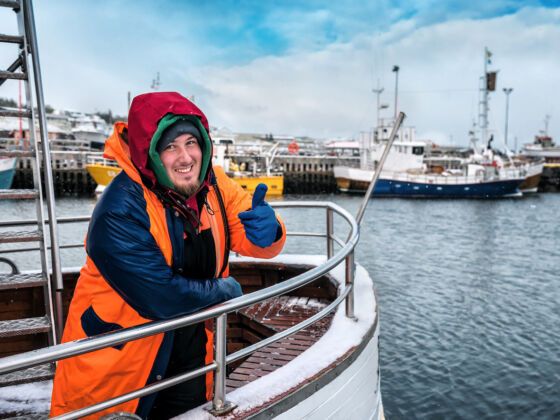My dad is a 30-year veteran but refuses to adhere to the standards of a Federal license.
As a result, I’m the captain aboard my father’s ship, he is the skipper. I am ‘in command’ while he is ‘in charge,’ and legally it’s my ass on the line if anything happens to our passengers or the vessel.
